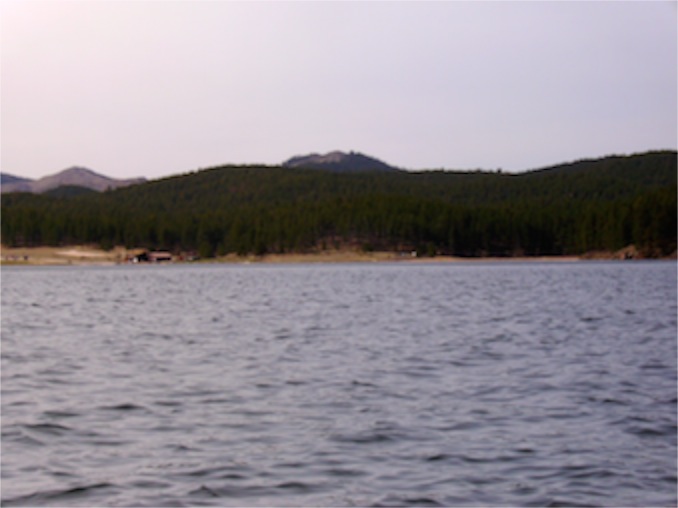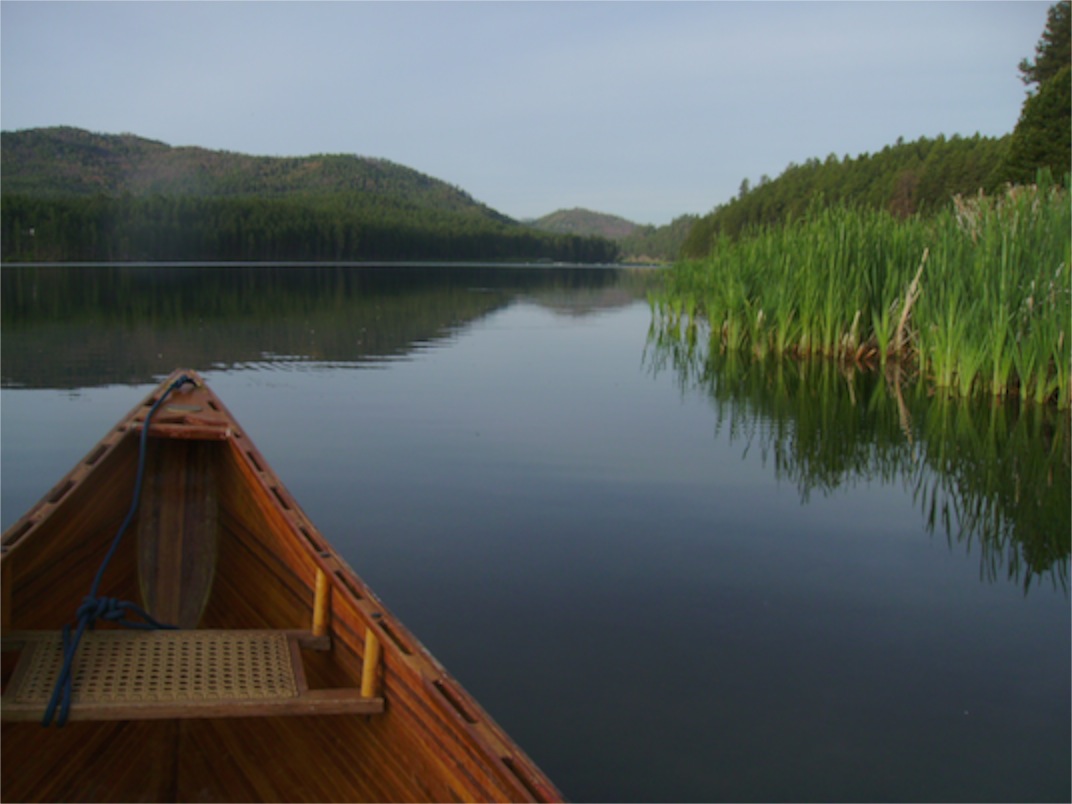
I’ve never lived on the shore of a lake, even a pond, like Thoreau. It isn’t as if he spent his life at the shore of the pond. His book is the report of an experiment in living that he undertook for two years, two months and two days in a cabin that he built himself. Then he compresses the time in the book into one year. The book isn’t, in my opinion, Thoreau’s best. He’s got a little bit of philosophy, a little bit of satire, a little bit of introspection and a little bit of commentary on society. I guess it is a little bit like this blog on its better days. I don’t find Walden to be a book to which I return from time to time. My favorite of Thoreau’s works is a little volume called “The Maine Woods” that contains the reports of three separate canoe journeys that he took, assisted by a guide who was an expert in canoe expeditions, hunting, and wilderness survival.
It is unlikely that I will ever live year-round on the shores of a lake. Lakefront property isn’t, for the most part, consistent with my income bracket and I’m not inclined to change professions in search of additional money at this point in my life.
So I don’t have the intimate, every-day relationship with any lake that enables me to know its every mood. I don’t even have a lake that I know in the same way I know the river of my youth.
But I do know that lakes have more than seasons. They have moods that change with the hour and vary day by day.
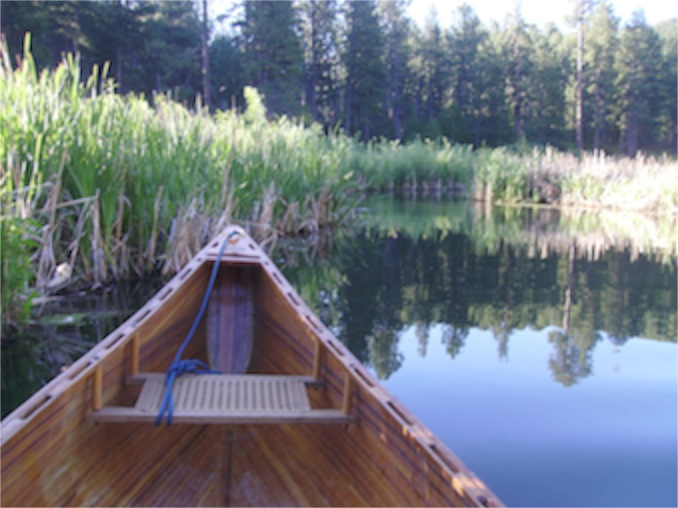
These days I know Sheridan Lake better than others. It is a reservoir. The hills don’t really have natural lakes. The name of the lake comes from the town that once was located alongside the small creek that wandered through the valley. It was originally known as “Golden City,” though I don’t think it ever made it to the size most associate with a city. It was a mining town, founded in 1874 and renamed in honor of General Phillip Sheridan at some point. At its peak it has churches, schools, stores, saloons and a red light district. By the turn of the 20th century, it was in decline as the mines proved to be less productive than the imaginations of the miners and the railroad changed the travel patterns in the hills. The town was largely extinct by the time the Civilian Conservation Corps began building the dam in the 1930’s. The Second World War distracted attention from the project, but the dam was completed in 1942 and the lake has been there ever since.
These days it is a bit clogged with excessive vegetation, but it remains a beautiful little lake that is perfect for canoeing and other forms of recreation. Last year there was a fire along its shores that blackened quite a few trees, but the area had recently been thinned and a lot of the trees survived the blaze.
We live a dozen miles from the lake. Since we live 10 miles from the church, I like to say that when I get home I’m half way to the lake. There are lots of other places to put a canoe into the water in the hills, but Sheridan Lake is by far the closest. In a good week, and this has been a good week, I can put a canoe into the water on several different days. Despite the 12-hour days that are required during Vacation Bible School week, there are a few quiet hours each morning and several mornings I have headed to the lake for an hour’s paddle.
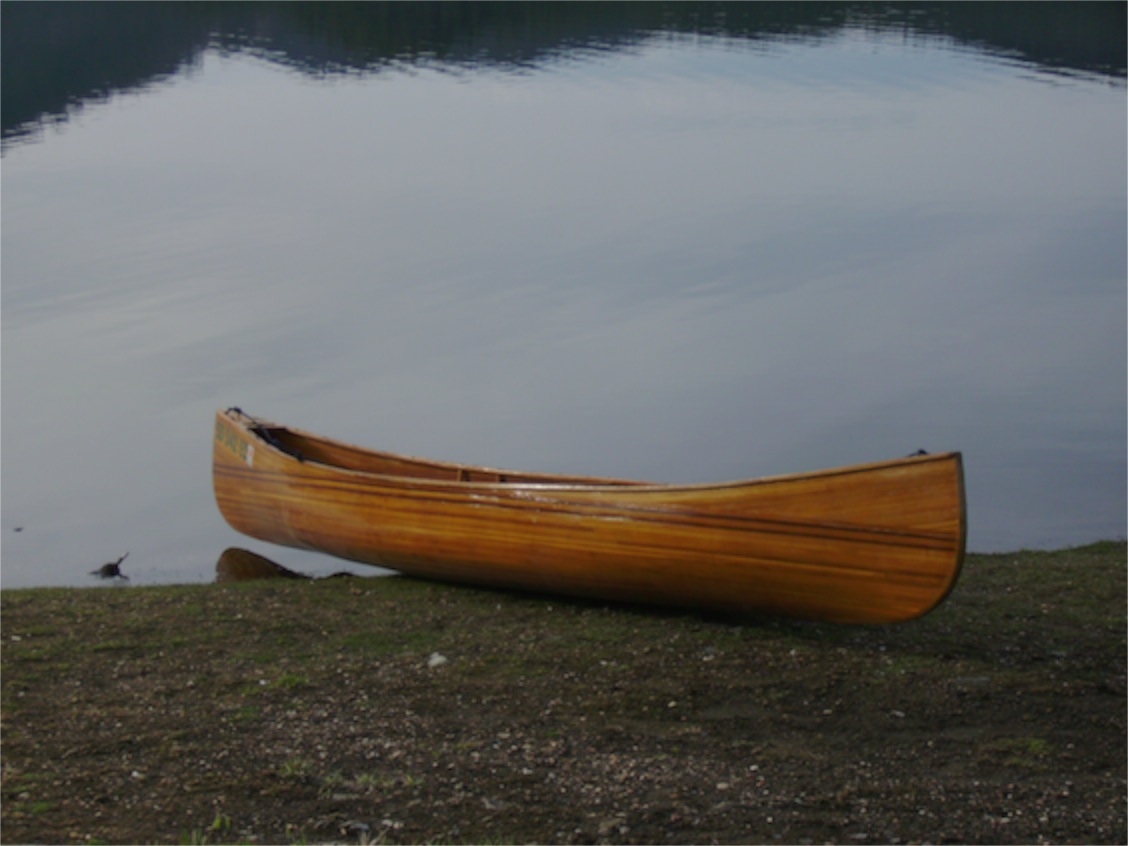
It continues to surprise me how many different moods the lake has. One day will be a very quiet day. The shore birds are never really quiet, but they have soft voices and although they can be heard across the lake, they don’t dominate the sense of the place. Early in the morning the water can be glassy smooth and everything is doubled in the reflections. My wooden canoe with a narrow maple paddle makes little noise as I breathe in the fresh air and stretch my shoulders for a bit of exercise. On the calmest days, the water birds are quiet. The ducks seem to be capable of paddling around and herding their chicks without their usual grumbling chatter. The geese, normally the noisiest of the birds at the lake somehow understand the silence of the morning and glide quietly without vocal commentary. Even the great blue herons rise from their standing places along the shore into flight without the pre-historic squawk that has echoed off of the hills for at least as long as the lake has existed.
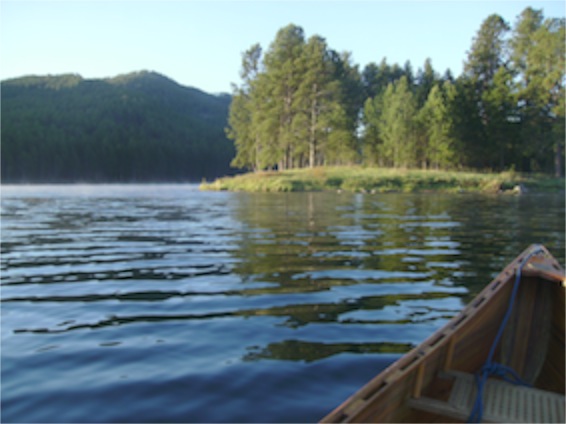
Then, just a day later, the lake will have an entirely different mood. Some days, it is a place that vibrates with life. Even with no wind an insect hatch will draw the fish to the areas along the shore and they will penetrate the water with frequent risings and cause a gentle ripple. The texture in the water is mesmerizing and the visual effect is entirely different that the glassy smooth surface that occurs on some days. On those days, the lake can take on a chattering quality, with all of the creatures adding to the sounds. The beaver, usually hidden up the inlet, working silently and mostly underwater might make an excursion onto the main lake and make a show of slapping his tail on the water as a warning to me that I am not alone. He rarely has the effect of making me alter my course, and often doesn’t even surprise me because I see him before he gives the big slap. The geese can be in a mood to complain about everything and the chatter will be strong between the ducks as they paddle along the shore. On those days the herons have to squawk as they take to flight and the echoes of all of the noises make it seem as if it there are twice as many creatures as is the case. On the noisy days, if I have gone to the lake for solitude and quiet, a frequent quest of mine, I am reminded that I’m not the only one who frequents the lake and I never will have it entirely to myself, even when there are no other boaters who rise at 4 to get their craft onto the water by 6.
There are many other moods that the lake takes on. A little breeze can stir up some chop. A dark cloud can make the lake seem ominous. And these are just summer moods. The lake has many other moods that I have witnessed. A lifetime is too short to take it all in.
So I return to the same lake over an over again. There is no chance that I will discover all of its moods or learn all of its nuances. One lake is probably enough for one person. I know I’ll never be bored with this lake.
Copyright © 2013 by Ted Huffman. I wrote this. If you want to copy it, please ask for permission. There is a contact me button at the bottom of this page. If you want to share my blog a friend, please direct your friend to my web site.


